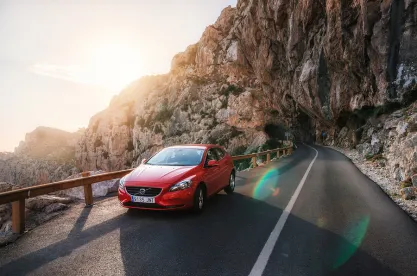On the heels of Volkswagen announcing moves toward electrifying its vehicle fleet, and Tesla beginning its production run of its highly anticipated Model 3, several other recent developments show momentum continuing to build toward the replacement of fossil fuels with electricity to power the cars of the future.
France to Ban Gasoline and Diesel Cars (by 2040)
On the heels of its re-commitment to the Paris Climate Accords, France has announced a series of plans and initiatives to reduce its carbon emissions. In addition to shuttering its coal-fired power plants by 2022, France’s ecology minister claimed France would end the sale of gasoline and diesel-powered cars by 2040.
France joins a growing list of countries, including India, the Netherlands, and Norway, which have either legislated similar bans on fossil-fuel-powered cars, or are seriously considering such bans (to say nothing of governments taking other steps to encourage electric car usage). That measure will put heightened pressure on the major automakers that call France home, like the PSA Group (the owner of Peugeot and Citroen) and Renault, to continue their efforts to transition to electric cars.
Volvo Electrifying Its Fleet
While not as large a manufacturer as Volkswagen, or having the market cap of Tesla, Volvo made waves recently with its announcement that, by 2019, it will phase out powerplants relying entirely on internal combustion engines. In their stead, Volvo will use a mix of hybrid (both plug-in and conventional) engines and electric motors.
The move is not entirely surprising. Volvo is owned by the Chinese company Geely, and there have been indications that given the serious air pollution problems in China, that country will be aggressive in pushing to electrify its fleet. Volvo’s executives have pointed to emissions and fuel economy requirements in other major markets—such as the (at-risk) U.S. Corporate Average Fuel Economy requirements and European requirements that automakers hit an average of roughly 57 miles per gallon by 2021—as drivers of this decision. It is also worth noting that as a low-volume luxury brand, Volvo does not have the luxury of simply downsizing gasoline engines and trading off performance in smaller compact and subcompact economy cars to improve its fleet fuel economy numbers; hybridization is a way of squeezing fuel economy gains from across the fleet without a major tradeoff in performance.
The Forecast for Electrification
In addition to these specific legislative and manufacturer developments, there are more fundamental signs that the market for electrified cars is taking root. The recent Bloomberg New Energy Forecast predicts that as the cost of manufacturing lithium-ion batteries continues to fall, electric cars will be no more costly than equivalent internal-combustion cars by 2025, which will be the major driver for consumer adoption.
That electric cars tend to have less maintenance requirements than internal-combustion engines will also play into the economic arguments for adopting the technology. The forecast also suggests that ride-sharing and autonomous vehicles in particular are likely to use electric vehicles in order to minimize ongoing maintenance costs in those applications.
Bloomberg’s forecast predicts that by 2040—the same year that France aims to bar the sale of gasoline and diesel cars—almost two-thirds of cars sold in Europe will be electrified, and over half of cars sold in the United States and China will have electric powerplants.
Looking Ahead
Trends are beginning to emerge from the increasing stream of stories about electric cars. Governments are taking an active role in guiding the market, with lawmakers motivated by climate change and more regional pollution issues to drive automakers to low- and zero-emission technologies. But another trend is just how international this movement is. In addition to the headlines regularly being made by American automaker Tesla, which was started from the ground up as an electric car company, France is joining several countries in Europe and Asia in driving the market for these technologies. And Volvo—a brand with roots in Sweden—is apparently being pushed to adopt this technology by its Chinese ownership. Even as Brexit and the election of Donald Trump have shown a souring appetite for a global approach to the economy in some sectors, these developments reinforce just how international the auto industry is and will continue to be.



 />i
/>i

